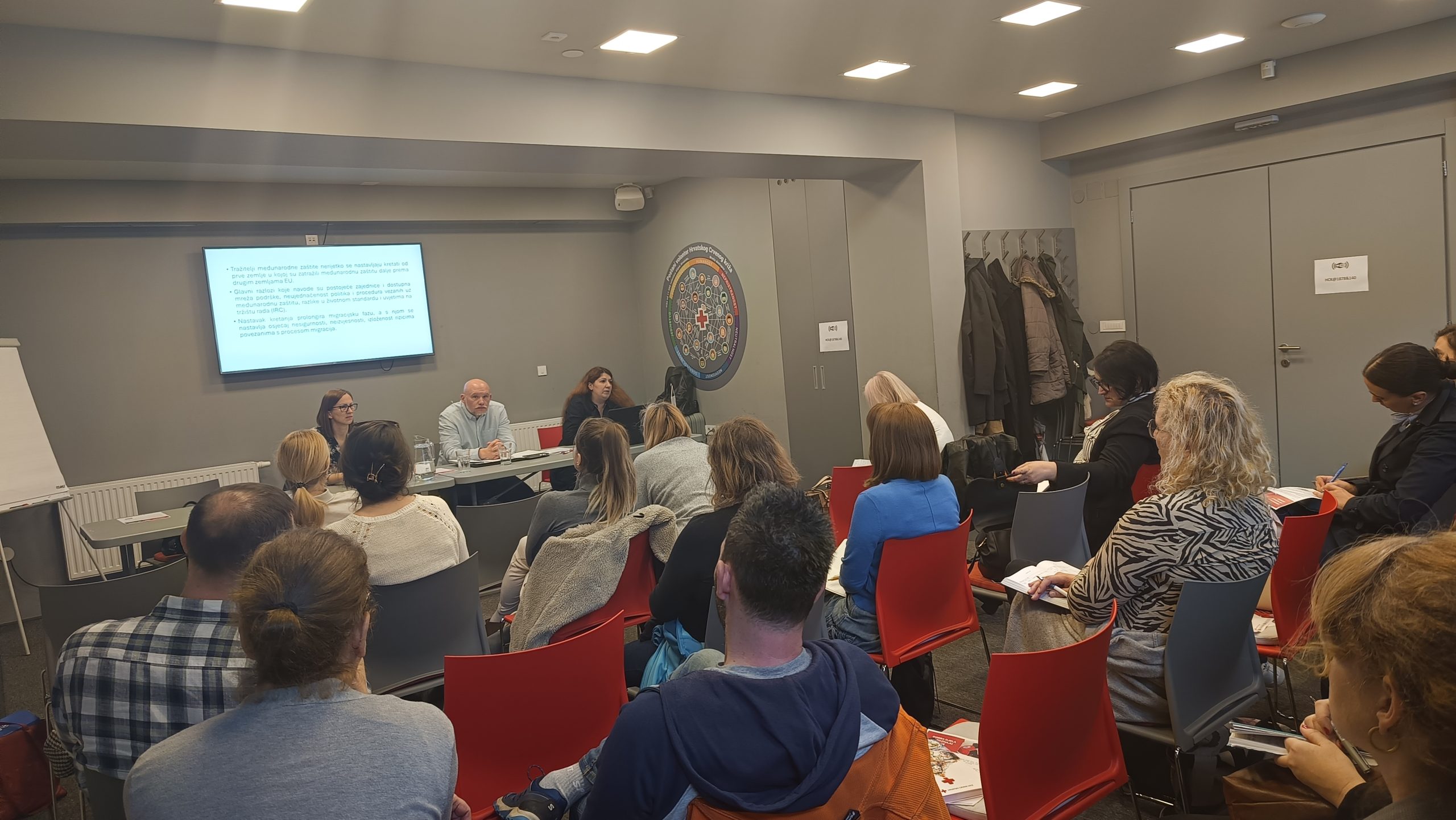On March 26, 2025, the first Coordination for Asylum meeting of the year was held at the premises of the Croatian Red Cross, bringing together representatives of relevant institutions and organizations involved in the asylum system. The main topic of the meeting was the Dublin Procedure, with introductory presentations given by Sandrina Sršan Petković (Head of the International Protection Service at the Ministry of the Interior), Filip Stipić (Head of the Reception and Accommodation Service for Applicants for International Protection at the Ministry of the Interior), and Antoana Silov (Head of the Migration Program at Médecins du Monde – MdM).
According to official data from the Ministry of the Interior, Croatia received 24,363 incoming requests under the Dublin Regulation in 2024. Based on these requests, a total of 1,698 individuals were returned to Croatia, with the majority of incoming transfers originating from Germany, Switzerland, Austria, and France. Most of the returned individuals were transported by air, except in cases of returns from neighboring countries such as Slovenia or Hungary, where road transport and police escort were most commonly used.
The primary legal basis for the majority of returns is Article 18(1)(b) of the Dublin Regulation, which stipulates that a Member State must accept an applicant whose application is under review and who has submitted an application in another Member State or is present in the territory of another Member State without a residence permit.
Statistics also indicate that the individuals most frequently returned to Croatia are nationals of Afghanistan, Syria, and Russia.
In addition to incoming requests, Croatia submitted 779 outgoing requests to other Member States in 2024 and carried out 18 outgoing transfers. The majority of relocations from Croatia were to France, Austria, and Germany.
During the meeting, it was emphasized that a significant number of individuals returned to Croatia from other Member States suffer from severe mental and physical health conditions, posing a considerable challenge for institutions and organizations operating within the system. Officials from the Ministry of the Interior, as well as non-governmental organizations providing support at the Reception Center for Applicants for International Protection, face daily difficulties in ensuring adequate accommodation, medical care, and psychosocial support for those in urgent need.
One of the issues highlighted in the discussion was that many individuals are returned to Croatia unexpectedly, often in the middle of the night, without prior notice and without the opportunity to collect their personal belongings or medical documentation. This practice further complicates the provision of timely medical assistance and support, particularly for vulnerable groups such as individuals with chronic illnesses and trauma survivors.
Additionally, the forced separation from family members at the time of return further worsens their emotional and psychological well-being, deepening feelings of insecurity and distrust in the international protection system.
Participants agreed that it is essential to improve the information exchange system between EU Member States to ensure that returns are conducted in a more humane and organized manner, with full respect for the dignity and fundamental rights of the individuals involved in the process. The current system often results in situations where people are returned suddenly, without prior notice, making it difficult for them to prepare and adapt to their return to Croatia.

